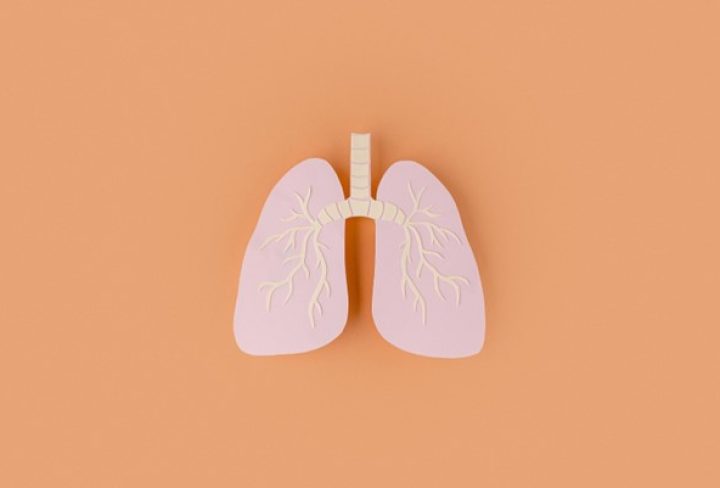It is a chronic lung disease in which the air sacs in the lungs become damaged and enlarged, leading to difficulty breathing.
The primary cause of emphysema is smoking, and the only cure is to quit smoking.
Symptoms of Emphysema
Symptoms of emphysema gradually develop over time.
Common symptoms include:
- Shortness of Breath, Particularly During Physical Activity
- Wheezing
- Coughing, Which May Produce Mucus
- Tightness in the Chest
- Fatigue
- Unintended Weight Loss
- Recurring Respiratory Infections
Causes of Emphysema
The primary cause of emphysema is long-term exposure to irritants like:
- Cigarette Smoke
- Marijuana Smoke
- Air Pollution
- Chemical Fumes and Dust
Factors that can increase the risk include genetics, age, gender, and working or living in a place with poor air quality.
Diagnosis of Emphysema
•Medical history: Review the patient’s symptoms, health history, and family history.
•Physical exam: A doctor will listen to the patient’s lungs with a stethoscope and check for signs of emphysema, such as wheezing or decreased breath sounds.
•Imaging tests – X-rays, CT scans, and MRIs to visualize the lungs and look for signs of emphysema
•Spirometry- To measure the functioning of the lungs
•Blood tests – To check for signs of inflammation, infection, or other conditions.
•Lung biopsy- In some cases, a doctor may order a lung biopsy to confirm a diagnosis of emphysema.
Treatment of Emphysema
Treatment of emphysema focuses on relieving symptoms, preventing further lung damage, and increasing exercise capacity.
Treatment options may include:
• Medications: Bronchodilators, inhaled corticosteroids, and antibiotics to reduce inflammation and open airways.
• Oxygen therapy: Supplemental oxygen is used to help increase the amount of oxygen in the bloodstream.
• Pulmonary rehabilitation: A exercise, education, and support program to help you manage your COPD.
• Surgery: Lung volume reduction surgery, lung transplant, and endobronchial valves can be considered for people with severe emphysema.
• Quit smoking: Smoking is one of the major causes of emphysema. Quitting smoking can greatly reduce your risk of developing emphysema and slow down the progression.
How can I reduce my risk of developing emphysema?
1. Quit smoking: Quitting smoking is the best way to reduce your risk of developing emphysema. Smoking is the number one cause of emphysema.
2. Avoid second-hand smoke: Secondhand smoke can also increase your risk of developing emphysema, so avoid public places where smoking is allowed.
3. Exercise regularly: Regular exercise can help reduce your risk of developing emphysema by strengthening your lungs and improving their functioning.
4. Wear a mask: If you work in a dusty or smoky environment, wear a mask to reduce exposure to irritants that can cause emphysema.
5. Eat a healthy diet: Eating a healthy diet rich in fruits and vegetables can help reduce your risk of developing emphysema by providing your body with antioxidants that can help protect your lungs.
Emphysema: When to see a doctor?
If you are experiencing any of the following symptoms, you should seek medical attention:
– Persistent cough
– Wheezing
– Shortness of breath
– Difficulty breathing
– Chest pain
– Fatigue
– Unexplained weight loss
– Bluish tint to the skin, especially around the lips and fingernails
Essential Emphysema Care Tips
- Quit smoking
- Wash your hands regularly,
- Brush and floss your teeth daily and use an antibacterial mouthwash after meals,
- keep your breathing equipment clean,
- clean your house clean and be up to date on all vaccinations
- Get an exercise program from your healthcare provider and follow it.
- Avoid irritants (smoke, car exhaust fumes, strong perfumes, cleaning products, paint or varnish, dust, pollen)
Can your lungs heal from emphysema?
Yes, in some cases, emphysema can be reversed with treatment. This includes quitting smoking, taking medications to help open airways, and using supplemental oxygen. Lung transplantation may also be an option in some cases.
Is emphysema contagious?
No, emphysema is not contagious. It is a chronic lung disease caused by long-term exposure to air pollution, smoking, or other irritants. There is no known way to spread emphysema from one person to another.


